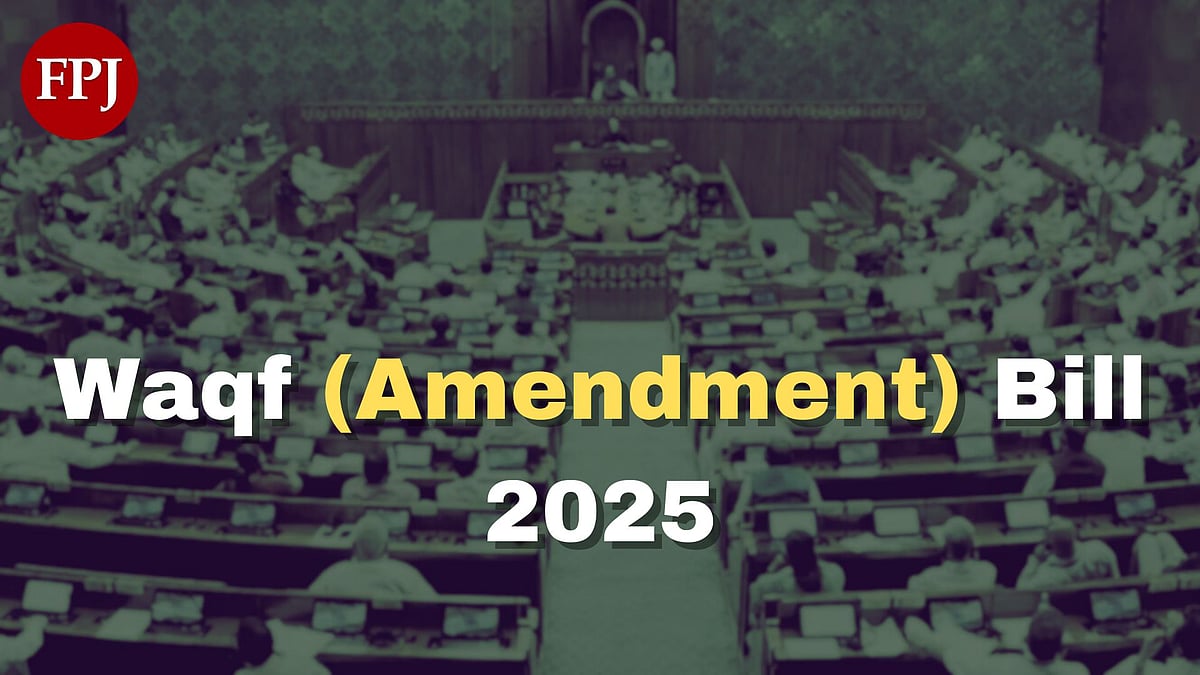Waqf (Amendment) Bill 2025: All You Need To Know About The Proposed Key Reforms | X/@PTI_News
New Delhi: After a 12-hour long debate, the Lok Sabha passed the Waqf (Amendment) Bill on Thursday, April 3, with 288 members voting in its favour and 232 against it. First introduced in Parliament in 2024, the Bill was sent to a Joint Parliamentary Committee (JPC) led by Bharatiya Janata Party (BJP) MP Jagdambika Pal for further review.
The committee presented its report on February 13, and received an approval by the Union Cabinet six days later. However, Opposition members on the panel alleged that their proposed amendments and dissenting opinions were removed from the report without their consent.
The newly introduced Bill, which will repeal the 2024 version, aims to amend the Waqf Act, 1995, which oversees the administration of Waqf properties in India. It proposes major reforms that would enhance the government’s involvement in regulating Waqf properties and handling related disputes.
Here’s everything you need to know about the key reforms in the Bill:
No Change In Ownership of Existing Waqf Properties
The key amendment in the Bill ensures that the ownership of the existing Waqf properties will not be altered unless a dispute arises. This provision offers a reassurance that the retrospective application of the law will not alter the status of these properties.
‘Waqf by User’ Doctrine Preserved
The amended Bill preserves the concept of “waqf by user,” an Islamic legal tradition that recognises religious or charitable properties based on their long-term communal use, even without formal documentation. The original version of the Bill sought to eliminate this principle; however, the amendment ensures that these properties retain their status unless they are disputed or designated as government-owned.
Inclusion of Non-Muslims in Waqf Bodies
The new Bill includes provisions that will allow non-Muslims to be appointed to key positions within Waqf institutions like the Central Waqf Council (CWC) and the State Waqf Boards (SWB).
It also enables the government to nominate two MPs from the Lok Sabha and one from the Rajya Sabha to the CWC, regardless of their religion. The Bill further permits the appointment of non-Muslim Chief Executive Officers and mandates that at least two non-Muslim members should be included in the SWB.
Additionally, the amended Bill also stipulates that state government representatives on these boards must be senior officials dealing specifically with Waqf matters.
Expansion of Waqf Tribunal Structure
The composition of Waqf tribunals has been revised from two to three members in the amended Bill. The new structure will now have a District Judge, a joint secretary-level officer from the state, and an expert in Muslim law. The Bill also specifies that tribunals formed before the law’s enactment will continue to operate until their existing members complete their terms.
Increased Government Oversight of Waqf Property Surveys
Previously, District Collectors were responsible for surveying Waqf properties, but the revised Bill now mandates senior officers above the rank of District Collectors to carry out these surveys, specifically in cases where ownership disputes arise. These officers will have the final say in determining whether a property belongs to the Waqf Board or the government.
Clarification on Waqf Property Ownership Disputes
The revised Bill designates senior government officers as the ultimate authorities to solve disputes regarding the ownership of Waqf properties, replacing Waqf tribunals in the matter. These officers will determine whether a property is Waqf or a government-owned property, and if it’s found to be the latter, they are required to update the relevant records.
This centralisation of decision-making is aimed at curbing potential misuse of the Waqf laws, particularly in cases of disputed properties.
Centralised Waqf Property Registration Portal
To improve the accuracy of Waqf property records, the amended Bill has introduced a centralised registration system. Within six months of the law’s enactment, all Waqf properties should be registered on a designated portal. New Waqf properties should also be submitted exclusively through this system.
However, the Bill includes a provision allowing tribunals to grant extensions for Waqf custodians who will be able to demonstrate valid reasons for missing the deadline.
Application of Limitation Act to Waqf Properties
The new Bill repeals a provision in the 1995 Waqf Act that exempted Waqf properties from the Limitation Act of 1963. Previously, Waqf boards could reclaim encroached properties without the time limit imposed by the Limitation Act.
With the proposed reform, the 12-year statutory period for commencing legal proceedings will now apply to Waqf properties, potentially allowing individuals who have occupied such properties for over 12 years to claim ownership under the doctrine of adverse possession. The Opposition argued that this could lead to the unlawful occupation of Waqf properties.
Judicial Oversight in Waqf Disputes
The revised Bill ensures judicial oversight in Waqf disputes by allowing parties to appeal Waqf tribunal decisions directly to the High Court within 90 days. This provision will prevent the arbitrary exercise of power by Waqf boards or tribunals.
However, it also restricts the ability of courts to entertain suits regarding Waqf property rights unless the property has been registered within six months of the law’s commencement, with exceptions granted only if the court deems there is a valid reason for the delay.
